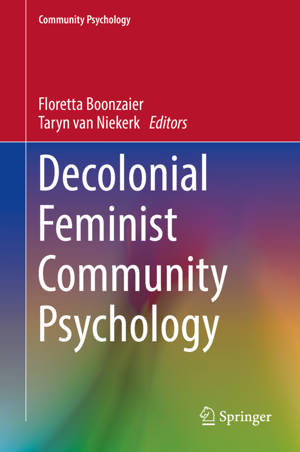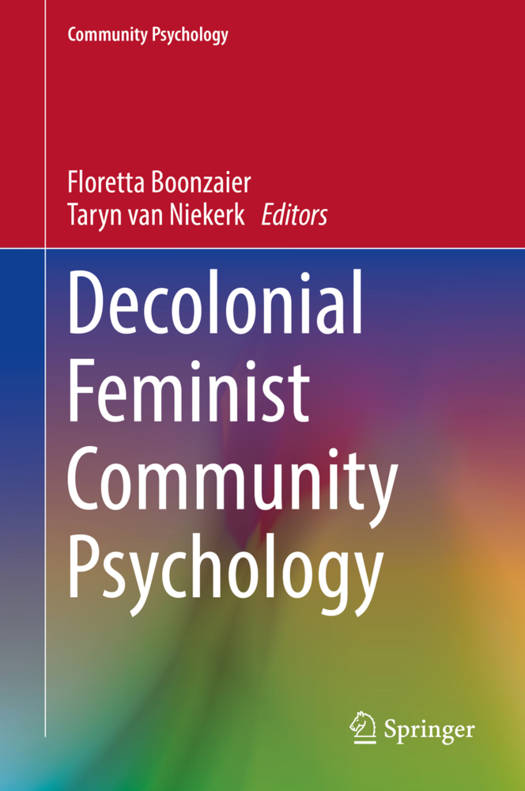
Nos liseuses Vivlio rencontrent actuellement des problèmes de synchronisation. Nous faisons tout notre possible pour résoudre ce problème le plus rapidement possible. Toutes nos excuses pour la gêne occasionnée !
- Retrait gratuit dans votre magasin Club
- 7.000.000 titres dans notre catalogue
- Payer en toute sécurité
- Toujours un magasin près de chez vous
Nos liseuses Vivlio rencontrent actuellement des problèmes de synchronisation. Nous faisons tout notre possible pour résoudre ce problème le plus rapidement possible. Toutes nos excuses pour la gêne occasionnée !
- Retrait gratuit dans votre magasin Club
- 7.000.0000 titres dans notre catalogue
- Payer en toute sécurité
- Toujours un magasin près de chez vous
Decolonial Feminist Community Psychology
Critical Perspectives from the Global South
158,45 €
+ 316 points
Description
This edited volume seeks to critically engage with the diversity of feminist and post-colonial theory to counter hegemonic Western knowledge in mainstream community psychology. In doing so, it situates paradigms of thought and representation that capture the lived experiences of those in the global South. Specifically, the book takes an intersectional approach towards its reshaping of community psychology, centering African, black, postcolonial, and decolonial feminist critiques in its 1) critique of existing hegemonic Euro-American community psychology concepts, theories, and practice, 2) proposal of new feminist, indigenous, and decolonial methodological approaches, and 3) real-life examples of engagement, research, dialogue, and reflexive qualitative psychology practice. The book concludes with an agenda for theorization and research for future practice in postcolonial contexts. The volume is relevant to researchers, practitioners, and students in psychology, anthropology, sociology, public health, development studies, social work, urban studies, and women's and gender studies across global contexts.
Spécifications
Parties prenantes
- Editeur:
Contenu
- Nombre de pages :
- 160
- Langue:
- Anglais
- Collection :
Caractéristiques
- EAN:
- 9783030200008
- Date de parution :
- 24-07-19
- Format:
- Livre relié
- Format numérique:
- Genaaid
- Dimensions :
- 156 mm x 234 mm
- Poids :
- 421 g






